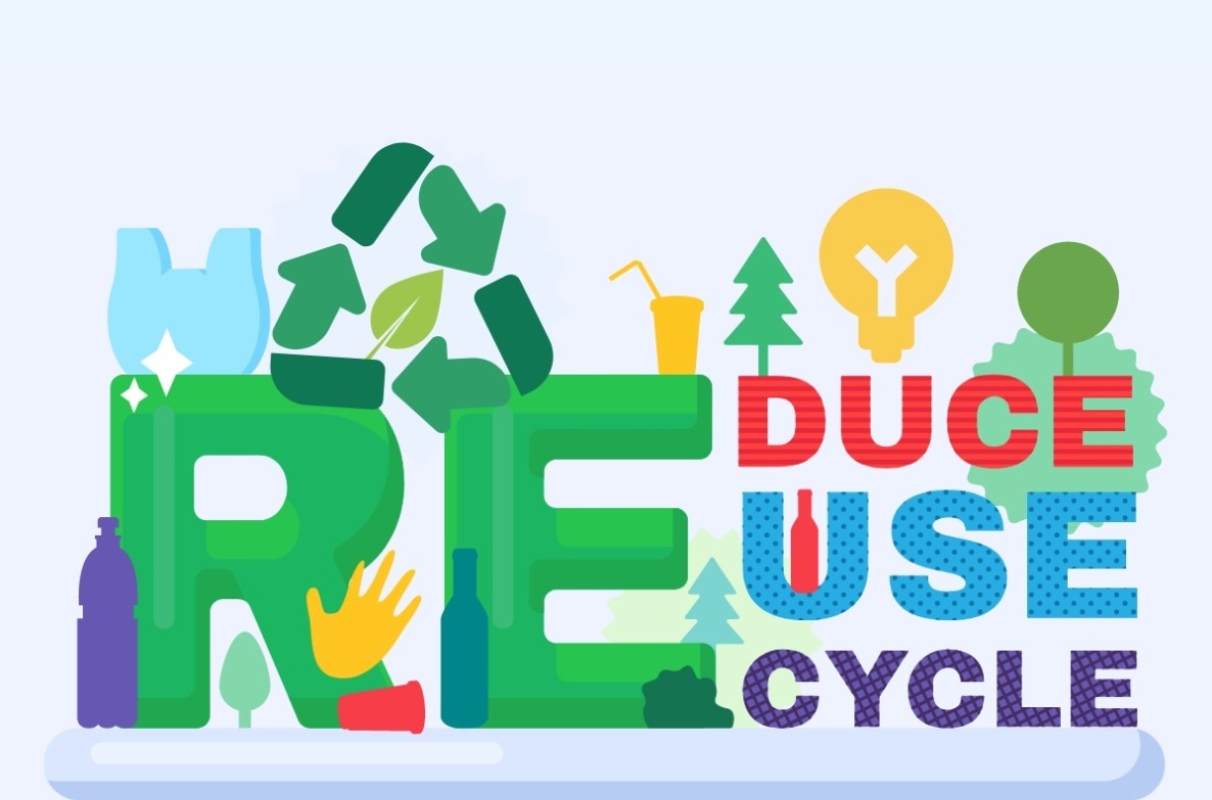
A sustainable circular economy for plastics aims to reduce unnecessary plastic use, use renewable materials for plastic production, rely on renewable energy, ensure plastics are reused and recycled without escaping into the environment, and produce minimal waste or emissions. To support this, the Government of India, through the Plastics Waste Management Rules of 2016, has implemented Extended Producer Responsibility (EPR) for producers, importers and brand owners. This policy promotes circularity where the manufacturers are responsible for the collection and processing of their products at the end of their life cycle. EPR's goal is to reduce the overall environmental impact of a product's waste materials and motivate manufacturers and brand owners to develop markets for reusing and recycling these materials.
The Role of Recycled Plastics
Recycled plastic serves as a third type of raw material for producing plastics. When plastics are not reused or recycled, each kilogram needs to be substituted with another kilogram of plastic made from non-renewable, fossil-based materials. Recycling provides a sustainable way to manage plastics at the end of their lifecycle, enhancing both energy efficiency and environmental outcomes. According to a 2018 study by McKinsey & Company, recycled resins have the potential to substitute nearly one-third of virgin plastic by 2030 and almost 60% by 2050. The increasing market demand for high-quality recycled plastics is driven by elevated voluntary and regulatory targets set by companies and governments as part of their commitments to sustainability.
Challenges and Opportunities in the Circular Plastics Economy
Numerous effective strategies that promote circularity in the plastics industry are in practice both in India and worldwide. Although there are many challenges in adopting the circularity of plastics in India. These challenges are being addressed, both, by the Government and the manufacturers as well. These challenges once addressed can create vast economic, social, and environmental opportunities within the plastics and other industries.
Strategies for Enhancing Circularity
Moving forward, fostering innovation, establishing partnerships, and enhancing collaboration can help expand these practices and enable their adoption across different regions and sectors. This expansion could open up opportunities for mitigation, including the benefits of sustainable development through circular business models that redesign the waste supply chain and improve reverse logistics.
Importance of Awareness in Circular Economy
It's crucial to raise awareness to engage all stakeholders throughout the process. A lack of consumer understanding about circular opportunities can significantly impede the scaling and implementation of these best practices, highlighting the need for comprehensive education and awareness campaigns. Generating awareness can facilitate the collaborative creation of products with individuals, customers, or suppliers, integrating them into the value chain. This awareness can also increase demand for more sustainable plastic alternatives and practices early and midway in the plastics value chain and help enhance plastic waste management at the end of life, downstream through initiatives like source separation and participation in deposit refund schemes.
Article contributed by Fariha Salman, Executive Officer - Policy, MAIT
Comments (3)
Pravishi Srivastava
13 Jun 2024Testing
ajay
13 Jun 2024this is good
Manish
13 Jun 2024Testing!
Leave Your Comment: